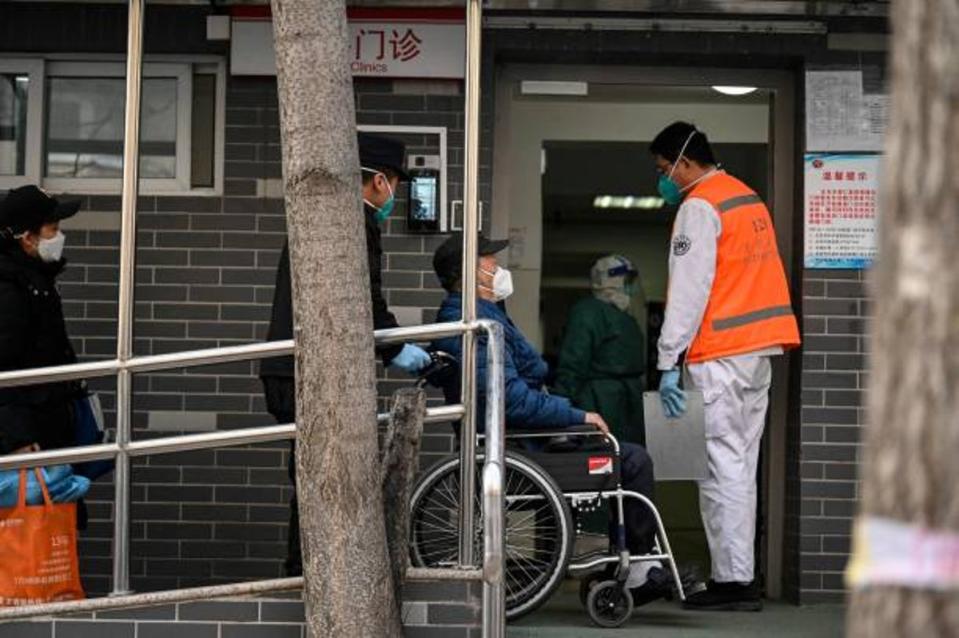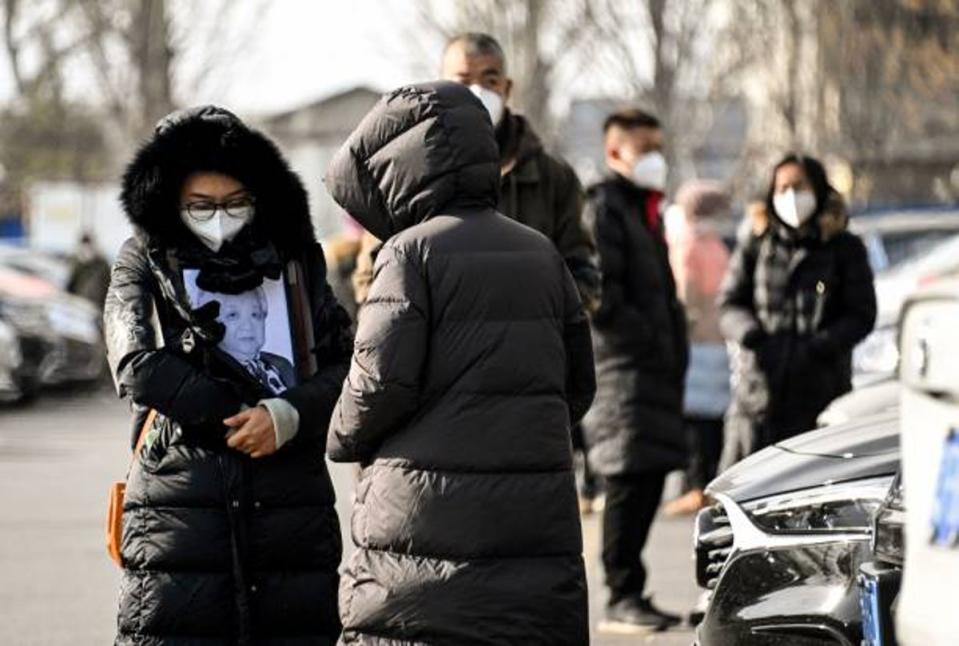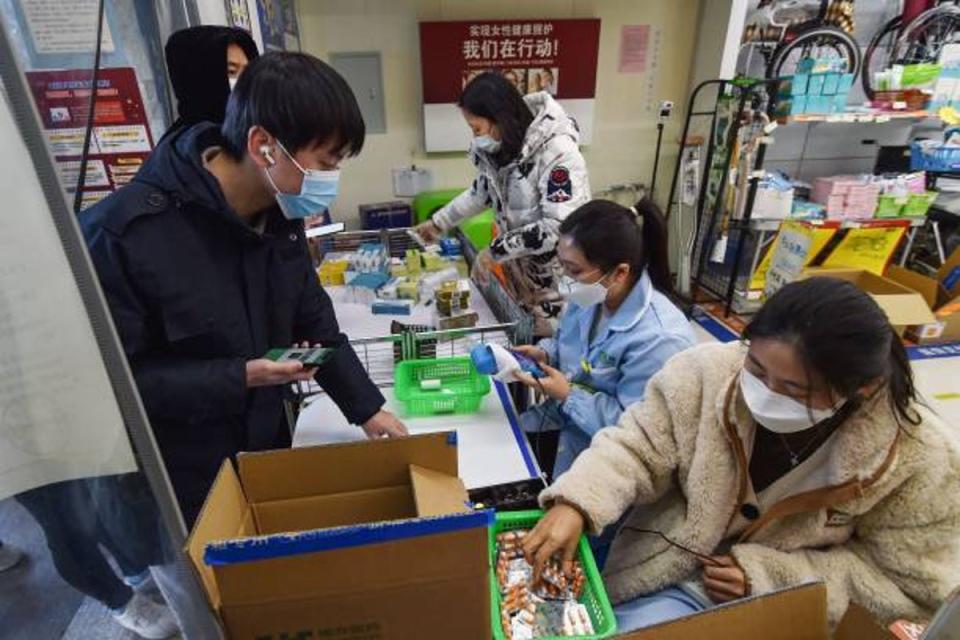China’s Covid toll a concern for the world, says US State Department
The United States expressed concern over the Covid-19 outbreak in China, as the country recorded five more pandemic-related deaths on Tuesday.
The toll of the virus will affect the “rest of the world due to the size of China’s economy”, said US State Department spokesperson Ned Price during a press briefing yesterday. "It’s not only good for China to be in a stronger position vis-a-vis Covid but it’s good for the rest of the world as well," he added.
He also raised concerns around the mutation of the virus, saying: "We’ve seen that over the course of many different permutations of this virus and certainly another reason why we are so focused on helping countries around the world address Covid.”
Cities across China scrambled to install hospital beds and build clinics to screen fever, amid rising apprehensions over the official toll as the pandemic ripped through the country since the relaxation of Covid restrictions.
Beijing began dismantling its stringent “zero-Covid” strategy after protests against the curbs earlier this month.

With people testing and recuperating at home, China has said it is no longer possible to keep an accurate count of new case numbers, making it substantially more difficult to gauge the state of the current wave of infection and its direction.
Since then, some hospitals have become inundated, pharmacies emptied of medicines, while many people have gone into self-imposed lockdowns, straining delivery services.
According to epidemiologist and health economist Eric Feigl-Ding, China’s goal is "let whoever needs to be infected, infected, let whoever needs to die, die. Early infections, early deaths, early peak, early resumption of production".
"It’s a bit of a burden to suddenly reopen when the supply of medications was not sufficiently prepared," said Zhang, a 31-year-old delivery worker in Beijing who declined to give his full name. "But I support the reopening.”
Many were seen coughing in their masks in Beijing, as they commuted to work on the train. Streets in Shanghai, where Covid transmission rates are also catching up with Beijing’s, were emptier and subway trains were only half-full.

"People are staying away because they are sick or scared of getting sick, but mostly now, I think it’s because they are actually sick,” said Yang, a trainer at a nearly empty Shanghai gym.
So far, the country has reported only 5,242 Covid-related deaths since the pandemic was first reported in the central city of Wuhan in late 2019 – a very low toll compared to other nations across the world.
Top health officials have also softened their tone with respect to the threat posed by the virus, a sharp U-turn from the previous messaging in which they warned that the virus had to be eradicated to save lives.
They have also been playing down the possibility that the now predominant Omicron strain could become more virulent.
"The probability of a sudden large mutation... is very low," Zhang Wenhong, a prominent infectious disease specialist, told a forum on Sunday in comments reported by state media.
There are, however, signs of the virus piercing through the country’s health system as cities are ramping up efforts to expand intensive care units.
Major cities, including Beijing, Shanghai, Chengdu, and Wenzhou, in the past few weeks have announced adding hundreds of fever clinics, some in converted sports facilities, in a bid to control the spread.
“Every new epidemic wave in another country brings the risk of new variants, and this risk is higher the bigger the outbreak, and the current wave in China is shaping up to be big," said Alex Cook, vice-dean for research at the National University of Singapore’s Saw Swee Hock School of Public Health.

"However, inevitably China has to go through a large wave of Covid-19 if it is to reach an endemic state, in a future without lockdowns and the economic and political damage that results."
Some health experts have estimated that up to 60 per cent of the population in China, which is equivalent to 10 per cent of the world’s total population, could be infected with the virus, and more than two million could die.
In the capital, Beijing, security guards patrolled the entrance of a designated Covid-19 crematorium where Reuters journalists on Saturday saw a long line of hearses and workers in hazmat suits carrying the dead inside. Reuters could not establish if the deaths were due to Covid.
According to the Wall Street Journal, Beijing Dogjiao Crematory has observed a jump in requests for cremation. "Since the Covid reopening, we’ve been overloaded with work," a woman told the outlet, adding, "right now, it’s 24 hours a day. We can’t keep up".
She estimated that about 200 bodies were arriving each day, a sharp jump from the earlier estimate of 30 to 40.
The pandemic is also hammering China’s economy, which is projected to grow three per cent this year, the worst in nearly half a century.
Workers and truck drivers falling ill are slowing down output and disrupting logistics, economists say.
(With additional reporting from agencies)


